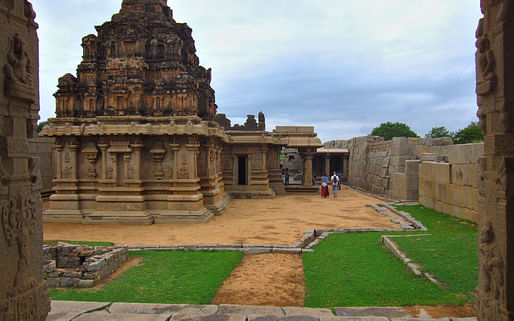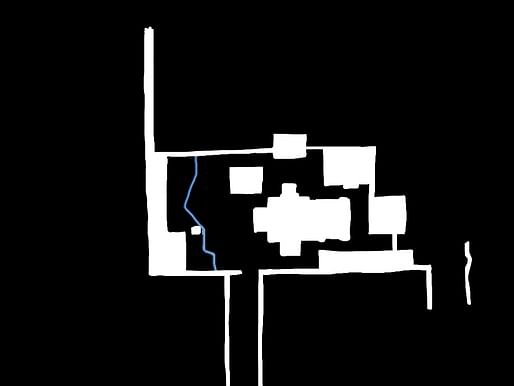
Jul '12 - Jan '13
The architect's home- a manifestation of his accumulated knowledge, a reflection of his ideology and philosophy bound by the wills of no client, and often the epitome of his career (think Kings Road House, VDL House, etc.) The architect’s house is omnipresent, dwelling in the back of the mind, morphing and shifting with aggregated knowledge and experience, waiting for its birth- its materialization. To experience merely a fragment of one’s dreams, I have never had the pleasure of making acquaintance, until today.
Her name was Hazara Rama. She was built in the 15th century and was the personal temple of the royal patronage of Hampi. Oh what a fine sculpture she is! Her exterior walls reach 15 feet towards the sky, opening most opulently towards the east through a pillared pavilion. Her north gate is not so far emphasized as the east, but more so than the modest south gate. Her plan, I found Mondrian-esk, and her figure ground a clear and balanced composition. Her halls, the proper scale for living, are separately monolithic, yet in concert are complementary. It would be a case study house, fit only for the mild climate of Southern California, as circulation eventuates to the exterior.
Materialistically, she is lucid, containing merely four materials: carved granite block, decomposed granite, grass, and water. All structures are granite, high traffic areas are decomposed granite, and a humble lawn to the west lies in conjunction with the seemingly desultory line of a 'Bächle,' familiar to the streets of Freiburg. A well lies adjacent, within the confines of the grass, adding to the differing scale of structures- a sculptural piece of utility.
She’s an abode of outdoor living, reserved and tranquil, yet stark and timeless. Of high contrast, dramatic lighting, and divine milieu, a palace fit for any noble architect.
 Her northern façade
Her northern façade
 Her eastern gate
Her eastern gate
 Pillared dance hall
Pillared dance hall
 Her dance hall and courtyard
Her dance hall and courtyard
 The elemental composition of her courtyard
The elemental composition of her courtyard
 Hazara Rama figure ground
Hazara Rama figure ground
An Indo Inquisition is a thirteen-week train expedition across India. The journey will document the influences of international modernism and British occupation, as well as compare the effects of wealth accumulation, culture, religion, and poverty with economic growth and their effect on the built environment.
No Comments
Block this user
Are you sure you want to block this user and hide all related comments throughout the site?
Archinect
This is your first comment on Archinect. Your comment will be visible once approved.